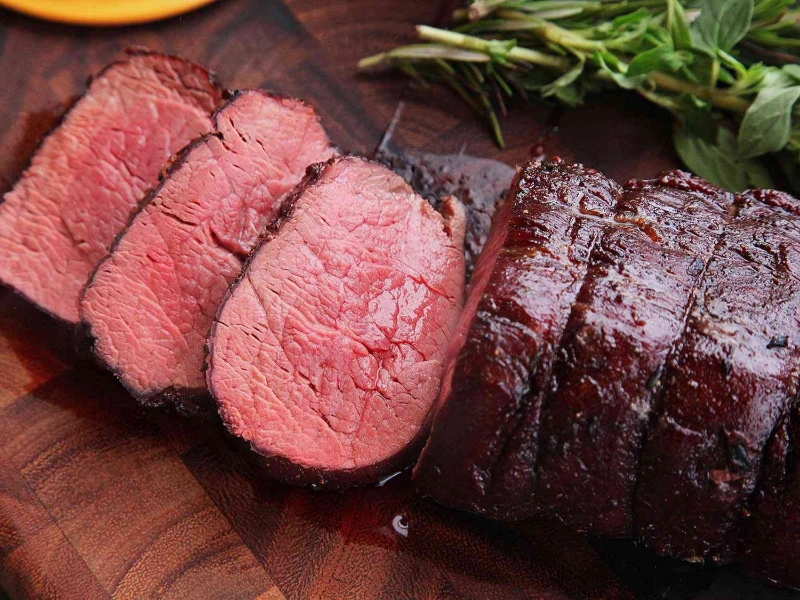Beef and Heart Health: Debunking Myths and Understanding Facts
1. The Relationship Between Heart Health and Diet
A vital component of general well-being, heart health depends much on diet and is maintained mostly by it. Red meat—especially beef—has been under close examination for years for possible effects on heart health. Given its saturated fat intake and cholesterol levels, many individuals think eating beef can cause heart disease. Still, the link between beef consumption and heart health is complicated and sometimes misinterpreted. Knowing the truth about beef and how it affects cardiac conditions would enable people to choose their diets with knowledge.
2. Understanding Saturated Fats
The quantity of saturated fat in beef raises one of the main issues. Often referred to as "bad," LDL cholesterol—which can aggravate heart disease—has been connected to saturated fats. Still, not all saturated fats are made equal. Recent research imply that the whole dietary situation may affect the effect of saturated fat on heart condition. Unlike processed meals, consuming saturated fats from natural foods—like beef—may not have the same detrimental impacts. This emphasizes the need to give the diet's saturated fat source some thought.
3. Beef's Nutritional Value
Rich in vital components, beef can help with general health. Along with essential vitamins and minerals, including iron, zinc, and B vitamins, it offers high-quality protein—necessary for muscle maintenance and repair. While zinc enhances immune function, iron is very vital for oxygen transport in the blood. Energy metabolism and brain function depend much on B vitamins, notably B12. Lean beef cuts included in a balanced diet help to meet nutritional needs without sacrificing heart health.

4. Lean Cuts and Portion Control
Choosing lean cuts and using portion management will help one enjoy beef while preserving heart health. Unlike fattier cuts like ribeye or T-bone, lean cuts include sirloin, tenderloin, and flank steak, which have less saturated fat. Furthermore, controlling general fat and calorie intake can depend on awareness of portion sizes. If you prefer to consume red meat, the American Heart Association advises that it should be limited to a few times a week and emphasizes lean choices and reasonable serving sizes.

5. The Role of Overall Diet
If one just pays attention to beef consumption, one may have a partial knowledge of heart health. The general caliber of the food counts greatly. A well-balanced diet high in fruits, vegetables, whole grains, and good fats will help to reduce the possible hazards connected with red meat consumption. Including a range of foods guarantees a wide spectrum of nutrients and preserves heart health by means of their interaction. One should view beef as part of a more comprehensive food plan rather than alone.

6. Myths Surrounding Beef and Cholesterol
Many myths exist regarding beef and its impact on cholesterol levels. Although beef does have cholesterol, new studies show that for most people, dietary cholesterol has little effect on blood cholesterol levels. The body controls the synthesis of cholesterol; so, individual reactions to dietary cholesterol can differ. Therefore, for many people, especially when combined with a good diet, modest intake of lean beef may not have any appreciable effect on heart health.
7. Importance of Lifestyle Factors
Beyond diet, several lifestyle choices affect heart health, including physical activity, stress control, and smoking cessation. Frequent exercise can help reduce any possible hazards connected to red meat intake and enhance cardiovascular condition. Maintaining heart health also depends on control of stress and avoidance of smoking. Maximum heart health depends on a comprehensive approach including a balanced diet, consistent physical activity, and good lifestyle choices.
8. Research and Guidelines
The emphasis of current dietary recommendations is on the need for a well-balanced diet including several sources of proteins. Although some studies have linked heavy red meat intake to a higher risk of heart disease, others have demonstrated that a heart-healthy diet can include a modest intake of lean beef. Research on the complex relationship between beef and heart health is still under progress; moderation and context seem to be rather important. People should think about their whole eating habits and see doctors before deciding on what to eat.
9. Summary of Findings
Knowing how beef and heart health relate calls for a sophisticated strategy. Although worries about cholesterol and saturated fat are legitimate, it is impossible to ignore lean beef's nutritional value or the need for a general diet and lifestyle. Lean cuts, quantity control, and a balanced diet high in many nutrients help people to enjoy beef without sacrificing their cardiac condition. Long-term cardiovascular health will be much improved by stressing a whole strategy including lifestyle factors and dietary choices.








